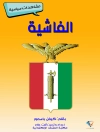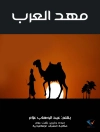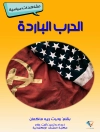The title of Beyond the Line refers to the imaginary “Line” drawn between North and South, a division established by the Peace Treaty of Cateau-Cambrésis in 1559. This is an early modern time and Eurocentric construction, according to which the southern oceanic world has long been taken as symbol of expansionist philosophies and practices.
An obvious motivation for changing this “Line” division is the growing influence of the “Global South” in the contemporary economic and political setting. However, another motivation for changing opinions in regard to the “Line” is equally important. We observe an emergent consciousness of the pivotal role of the oceanic world for human life. This requires the reformulation of former views and raises numerous questions. A diversity of connections comes to the mind, which demands the composition of a catalogue of case studies with an oceanic horizon.
Through this operation, different problems are being linked together. Which problems encounter historians with their research on fishes in the archives? How to trace records about pirates of non-European descent in the Indian Ocean? Which role play the Oceans as mediators for labor migrations, not only of the Black Atlantic but also of people moving from Asia to Africa and vice versa? What do we know about workers on the oceans and their routes? When considering oceans as “contact zones, ” with which criteria can their influence in different literary texts be analyzed? Is it possible to study nationalisms taking into account these transoceanic relationships? And how do artists address these questions in their use of the media?
Against the background of this catalogue of oceanic questions, “old” stories are told anew. Sometimes, their cultural stereotypes are recycled to criticize political and social situations. Or, in other cases, they are adopted for elaborating alternative options. In this sense, the contributions concentrate on countries like India, Kenya, Angola, or Brazil and cover different academic fields. A variety of objects and situations are explored, which have been and still are determinant for the construction of cultural narratives in view of the modified relationship with the geographically southern oceanic regions.
关于作者
Michael Mann studierte Geschichte Südasiens, Mittlere und Neuere Geschichte, Indologie und Germanistik an der Universität Heidelberg, von deren Philosophisch-Historischer Fakultät er mit einer Dissertation zur Agrar- und Umweltgeschichte in Nordindien promoviert wurde. Seit 2010 ist er Professor für Geschichte und Gesellschaft Südasiens an der Humboldt-Universität zu Berlin. Er arbeitet bevorzugt interdisziplinär, mit Spezialisierungen auf die Wirtschafts- und Sozialgeschichte, Umweltgeschichte, sowie Stadtgeschichte und Urbanisierung. Über den südasiatischen Subkontinent hinaus erstreckt sich sein Interesse auf den Indischen Ozean und seine Anrainerregionen. Migration, Diaspora und besonders der Sklavenhandel und die Sklaverei, wozu auch 2012 sein neuestes Buch Sahibs, Sklaven und Soldaten. Geschichte des Menschenhandels rund um den Indischen Ozean (von Zabern) erschienen ist, bilden hier den Schwerpunkt.
Ineke Phaf-Rheinberger (Dr.) ist unabhängige Wissenschaftlerin und am Institut für Afrika- und Asienwissenschaften der Humboldt Universität zu Berlin tätig. Zu ihren Forschungsschwerpunkten gehören lateinamerikanische, karibische und afrikanische Literatur. Sie studierte in den Niederlanden und Berlin. Phaf-Rheinberger war Professorin am Department of Spanish and Portuguese der University of Maryland, College Park und Gastprofessorin in verschiedenen anderen Ländern. Das von ihr im Neofelis Verlag mitherausgegebene Buch Beyond the Line (2014) ist Teil ihrer Forschung zur ozeanischen Modernität in lateinamerikanischen und afrikanischen Literaturen. Als ersten Schritt in diesem Zusammenhang gab sie das Buch Historias enredadas. Representaciones asimétricas con vista al Atlántico (edición tranvía, 2011) heraus.












